|
"How was your evening, Mister Ernie?"
What ends up being formative? Do we know, in the moment? Sometimes it can be as fleeting as somebody's line, a seemingly throwaway word sequence that reveals volumes, rewires how you consider life. Before I began this job I'd ride around with my close friend Brian Bell, who at the time drove delivery for Honda Auto Parts. We'd sit in traffic together, catching up. One day I asked him how he dealt with all this ridiculous traffic. The backups, the slowdowns, people zipping in and out. "You get used to it," he said. It was his tone which struck me. I'll never forget it. It was so calm, so nonchalant. It revealed he was in a headspace where traffic problems were of such minor concern as to be almost completely inconsequential. What should it matter, after all? You're a professional. It doesn't bother you. Brian may not even remember that brief reply of his, but I've carried its implications through the years, and it's proven formative in how I think about traffic. You get used to it. Ernie, above, is a colleague whom I've looked up to since day one. In reviewing the earlier years of my blog I've discovered I've quoted almost exactly the same line of his several times. It too was a formative sentence. He first said it when I rode his bus one evening (here), and I later restate the line in different contexts here and here, with another brief thought of his here. I thought I knew the line's import, but I didn't, and would only later fully internalize the concept through a horrific incident that proved excellent as a learning lesson. It's too much of a wound right now, though; maybe I'll write about it when it's a scar. In any event, Mister Ernie and I were walking to our cars at the day's close, and our brief discussion circled toward another facet of that key idea of his which has been so useful for me. "Great," he replied, in answer to my question. "So great. There's some challenges, but…" he paused, but only briefly, finding the words. "When you're serving, everything is better. Everything is better. 'Cause you know what? It moves yourself out of the way, and things are unstuck." "'Cause it's not even about us!" "No! It's not!" "It's not about–" "No!" Our words tumbling over each other in our enthusiasm. I said, "we're not good to people so that it comes back at us," "No!" "Although it often does," "It does," "It's about. It's about giving it out there." "And leaving it there." "Exactly!" "And then doin' it better the next day. How do you fine-tune–" Yes, I thought. Yes. Wow. This guy. I couldn't contain my admiration, and exploded with: "Ernie! You are one of the great, towering, thundering statues of existence in our time!" He laughed. "You know what, I throw it right back at you, Nathan! I throw it right back at you with impunity." "Thank you." "With impunity! It's always an honor just to see you, even if you don't talk. I just know. I know. I just know." "Right back atcha! Ernie!" He grinned wide, laughing out the line one last time: "With impunity!"
0 Comments
There is no entitlement in Devin. Among society's disadvantaged, some people act entitled precisely because they're not, trying to cover up for their bruised egos by over-asserting themselves. But there are those who recognize kindness is not a right. It is a privilege, to be treated well, and something to be thankful for. Devin's like that. He's disadvantaged only in the sense that in appearance, he's precisely the physical type people have been stereotyped into being afraid of:
Strong, young, hip, strapping black American male. I imagine he's regarded standoffishly, suspiciously, or worse too often, and you can see the appreciation light up in his eyes when you give him the opposite. That enthusiasm carries a spark both profoundly beautiful, but also hauntingly sad to me, because it even has to exist. "Hey," he says at Andover tonight. "Could I ask you for two transfers for me and Mister March Fifteenth?" "March Fifteenth" being our colloquial code name for his friend Anthony, so named because Anthony and I have similar birthdays. The two of them represent a certain go-getter motivation I find hugely inspiring, and best represented on the blog by one of my favorite exchanges, wherein Anthony gently spars with an older drug dealer about how to go through life. As for Devin, you may remember him reacting hard at the end of the Black Lives post. I reply with, "how could I turn you guys down, that would be absurd!" "Ha!" "Tell him I said hey!" "Will do!" "That's good of you to look out for him," I say, noting their friendship, his consideration of Anthony's needs. "Hey, that's how him and me do it. 'Cause I know he would think of helpin' me too." "Tha's beautiful." "And we don't keep track of how many times I've given or he's given, we just keep carrying it on." I can learn from that, I think. We're about the same age, he and I. We've spoken before, and on tonight's empty bus, our conversation moves to relationships. This was during my break-up phase. We talked at length about different methods of parting ways, how some are kinder, how some take two to put in the effort. The notion of having the courage to redefine a relationship as a friendship; the value of sustaining civility, such to emphasize the impact of good you had on each other. Devin finally said, "end it on good terms, always be on good terms so no matter what, you could call, if you was in the neighborhood you could say hey, how's everything, hope everything's goin' well in your life." "Man, you need to run for president." Devin beamed, looking at me with pleasant surprise. This was during the Obama years. Today, the sentence would certainly be no great compliment, and pre-2008, telling my African-American friend in the 'hood to do so wouldn't have had the requisite sense of possibility. It would have sounded more hopeless than invigorating. But for that real and glorious moment in American history, on that night in Rainier Valley, the sentiment carried real weight. I was trying to tell him his perception was sharp, his opinions considered; that he had the motivation to go far and the deep broadness of perception to understand and sympathize with the needs of others. I could tell no one had ever said anything like that to him before. I was trying to tell him he was kind, and about having a reach that exceeds, then expands, your grasp. He heard me. That's no Instagram– it's 35mm Polaroid Film in a Holga! Photo by Daphne Chu.
Seattle Art Fair starts August 3rd, and Shift Gallery is part of it. If you haven't been to Shift Gallery, you've walked past it. It has that cute little entrance on Washington between Third and Fourth, north side. Liz Patterson, curator of the August show there, has a lot on her mind to share, and one of them is the idea of foregrounding the neighborhoods and textures of Seattle this blog revels in, and which generally never see the light of day in art galleries. The other side of Seattle, so these out-of-town fair people can get a more dimensional feel of all the city represents. I'm excited to show you a few pieces of my own and share in taking in some really compelling work by others in Liz Patterson's group show Untitled, which opens Thursday, August 3rd from 5pm to 8. Stop by for a chat if you're in the neighborhood! Details, location and more here. These images are rather more important for me than many of the others I've shared here.
Click here for why, the galleries, and more! Enjoy! I'd never smelled anything more horrible in my life– and I've driven the 358! I've walked through LA's skid row. I've strolled down the alleys of the wrong part (more like wrong half, let's be honest here) of Napoli. This took the cake. The Breda bus had a huge driver's side window, and I put every inch of it to use, barely able to keep from vomiting. I'm ashamed to say I described the smell as "poop death" in relaying the story to others, as I could come up with no more accurate adjective.
How do you politely tell someone they smell awful? He was a big man, twice my weight and a head taller. In one hand was a full-size plastic chair which he carried as though it were a paperback book. He might have been forty, dark-skinned American, clad in a large black top with a scarf of sorts wrapped about his neck. He had kind eyes. When you're doing a short route, issues like this are less urgent. They'll be gone in twenty minutes, or ten. My route is ninety minutes. Did he intend to stick around? I wasn't prepared to undergo this level of suffering regularly. All the other passengers had scurried to the back of the bus en masse. I felt compelled to speak but didn't want to embarrass him. I waited till he got off at Twelfth and Jackson and then jumped out too, saying, "hold up, I wanna tell you something real quick." He tarried a moment on the sidewalk, chair swinging in hand. He was tall enough that he formed a silhouette in the sky, dwarfing nearby buildings from my shorter vantage. "Listen," I said. "I respect you. You're a good dude. But I got to ask you to take a shower, bro, we can't have you ridin' the bus smellin' like this. If I see you next time and I you haven't taken a shower, I'm gonna have to pass you up. I don't wanna do that." I rambled. I was nervous. "I di'nt wanna embarrass you in there with all those people…." He heard me out. "Alright," he replied. I wished him a good night. A few weeks later I saw him again at southbound Marion. He was sizable, but bulky mostly in the upper part of his frame, less so his legs; perhaps a former athlete. He moved with relative agility toward my front doors, nodding and looking me in the eye. "I cleaned up," he said. And he had. The smell had lessened. I figured he'd taken a shower and I appreciated the effort. "Thanks, man," I answered. This time his scarf was slightly ajar. I noticed something beneath: in the area of the lymph nodes and thyroid were masses of overlapping subcutaneous spherical globules, quite large, swelling to the point that there was no separation between neck and chest. That was four years ago. It's 2017 now, a summer night on an empty 12. I've traded my usual 7 for the evening, pinch-hitting to fill an earlier open shift. I haven't driven this thing in years. Here comes Boren Avenue and Madison, in the midst of hospital row, and there's somebody at the zone: an enormous figure, appearing even more massive with the lightweight black coat worn over his head as a hood. I see the scarf but can't place it. In shape and state of repair he reminds me of an ancient Germanic barbarian warrior; something untethered about this beast of a man on first impression. Feeling apprehensive but willing to take the dive, I take a deep breath and open the doors: "hey, how ya doin'?" It was the kind eyes I recognized first. They have a mellow quality to them, somewhere between frustration and sadness, teetering on the brink of how to deal with hopelessness. He was a Germanic warrior in silhouette only. The agility was gone. I wondered if he remembered me. I certainly did him, and instinctively tried to stop breathing. "Been a while," I said amiably. "Yeah," he replied. "Comin' from the hospital." "I hope they're taking care of you in there." "What?" "Oh, just sayin' I hope they're lookin' out for ya." "Not really." "I'm sorry to hear it." "There's only so much they can do. I have cancer." "Gosh, I'm sorry," I said. "That's why I smell bad, it's not 'cause I'm just some… I want you to know, 'cause I remember you told me I gotta clean up, but it's 'cause of this condition that I have." "I'm sorry, man. I appreciate you tellin' me what's goin' on." "Yeah, I wanted to tell you 'cause… some drivers aren't cool with it, and I was worried 'cause I remember you said wouldn't pick me up if I didn't clean up, but there's nothin' I can do about this condition." He remembered everything. I felt ashamed. My awareness of cancer has expanded in the intervening years, and I felt the deep, lacerating melancholy in his voice. "No, I totally hear you," I said this time. "Man, cancer… I've lost good close people to cancer, and I just…." Ah, the weight. Perhaps you know the weight. I shook my head, stuck for words at a red light. The thought suddenly burst forth, intact; he of all people would get it, the fundament of the dilemma which haunts me so. "What's crazy to me is, there seems to be no correlation, at all, between whether or not you're a good person, and how long you're alive. Cancer just tears up the best and worst of people." "I'm a good person," he said. "I can tell, you're a good dude." "It's just this thing eating me up," "I respect you, man, and I'm so sorry you got this thing goin' on." We moved on to other topics. He laughed incredulously at how I liked the 7 ("what about all those crazy people??"), and emphatically suggested I pick the 12 instead. We bantered back and forth about which route was better. He got off downtown. We wished each other a good night. Later, I walked through the bus checking for lost items, and the odor lingered, strong, present. But I wouldn't call it putrid now. It had a different shape in my mind, not rancid or foul. It was the smell of immeasurable sorrow. What plans did he once have? How wide was his smile, how rich his joy, before it all began? Did he know, in the year which would mark the halfway point in his life, that that was midway, and would he have spent it differently? Regret, despair, guilt, woe; these are the names of a present overwhelmed by the past, a past whose possibilities once felt tangible, now forever encased in glass. And what to make of the dispassionate heavens above, confounding in their silence as they look upon all that is glorious and terrible transpiring below? He was a child with a dream once, in America. He likely thought about family, accomplishment, romance, recognition. He wasn't thinking this. He didn't daydream about a deformed, outcast body with exterior growths, destroying itself against his will and revolting everyone within shouting distance. When was he last looked upon with anything besides pity and disgust? I opened the doors at the terminal, but otherwise made no attempt to get rid of the smell. It was as nothing compared to what he was going through. I know something about that pain. Grief is largely the act of being confused on a profound level. We enter this world not knowing how it works, and we gradually figure it out… until we further discover we really have no clue, no clue at all. The great universe keeps its cards close, and we go out of this life knowing about as much as we did coming in. Design is difficult to ascertain at ground level, but if we've been able to make others and ourselves a little happier, left a good mark in a heart or two, then some good was done. We made a spark together in the darkness, and it was real. I'm so glad I picked him up. I hope that just for a second there, when we were laughing about bus routes, he felt appreciated as a regular human being. Above: Plaza guard in the outskirts of Shenzhen, Guangdong Province, China.
"I really like the artwork in this building." Sitting on the late night bus headed home, I couldn't believe what I was hearing. Our base is famous for how awful its artwork is. There are comments you hear not infrequently– how best to eject the art from the premises, whether or not to deface it on the eve of retirement… my driver friend continued. "Like the pictures that look like the old TVs, where they look staticky. I really like those." "Are you being serious or sarcastic?" "No I'm being serious! I feel like I shouldn't like them but I do like them." "Okay. That's good to hear, I'll look at them with a new perspective." "No, I'm terrible at picking artwork." "It's all good!" "But I see those and I just think, my kids'll never see that." "You know, that's a good point. They're not gonna know what white noise is, visually. Wow. Wow. Or fast-forward or rewind on the VCR." The first time I saw fast-forwarded video I almost died laughing. "Yeah! Like the pain of finding the right spot!?" "Exactly! Or the sound of a television bein' turned off. You know, the old tube TVs? That weird little high frequency noise you would hear when you turned the TV on or turned it off?" "Yeah!" "When it kind of zapped shut?" "Yeah, exactly!" "Or like, winding a cassette tape with a pencil!" "Yeah, when it got all pulled out, hoping it still worked. And sometimes you didn't have a pencil and you had to uncomfortably wedge the tip of your finger in there." "i know exactly what that feels like. Those little prongs." "There was a time when my pinky was the perfect size for doing that. Yeah those little things that, you meet somebody that doesn't know how to read an analog watch!" I was incredulous. "No way!" "Sure. In schools, they're all digital now." "Okay, I spent decades looking at that second hand and minute hand waiting for it to get to the hour mark! Trying to see how much the minute hand would move per second. Or the little pencil sharpener in the corner of the room, and you'd get up and go sharpen your pencil?" "I think they still have those. 'Cause those were the industrial ones," "Dude. Those would annihilate a pencil, if you wanted it to. Shoot, I haven't thought about these things in years!" "I'm happy to bring up quasi-bad art–" "Please do! I will now appreciate that art in a way I never did." What will be endearing to today's youth? What will be cute? Will they talk about the quaintness of going to the store to buy a movie on disc, or signing a legal document by hand? The fact that some cars required keys to ignite? That headphones once had wires, and people sent emails? Will the pervasiveness of selfies one day be more kitschy than fun? With the first signs of Facebook and Twitter losing relevance, how long before they're chuckled over the way MySpace and Napster are now? I was flipping through a copy of Dickens' 1853 Bleak House and came across a passage where two older gentlemen share sentiments almost exactly the same as those above; the elderly lamenting the passage of time and change. They also recite the familiar refrain of the mystery of youthful behavior they're convinced they themselves never engaged in. They're not talking about teens in 2016 or even 1968, but 1853! The words are interchangeable. The conversation will be had by every generation, has been had by every generation since the advent of agriculture.* I think a more crucial view is noting how generally minimal the effect these superficial shifts have on what doesn't change. Picture a Vietnamese rice farmer working a terraced paddy, before the war; an aging bank executive in Geneva, reflecting on lost family; a wayward girl in an American trailer park, forced to grow up quick. Never mind which one of them uses Twitter. Do they not all feel the same sting of a broken heart, of dashed hopes, the bent frustration of dreams unfulfilled? Are they not compelled by the same loneliness, thoughts of death and belonging, the ever-elusive vision of permanence in a world of constant flux? Love. Self-worth, accomplishment. Do those people not yearn for what you do too, in the solace of a warm embrace? Everything changes, and everything stays the same. --- *Human life really was quite different prior to this turning point. Permanently situated societies, the concept of property, subjugation of women, homogenous diets and resulting malnutrition, monogamy, hierarchies and city-states, populations large enough to contain strangers and the resulting shifts in relationships and decision-making, and much more all stem from the birth of agrarian societies. These changes occurred relatively rapidly in the last 11,000 years, when considered against the previous 6,000,000 years of bipedal humanoid development, which was largely static by comparison. Learn more here. -- Most of this blog is conversations with passengers or between passengers. Conversations with operators on subjects far and wide here, here, and here. That's me in the picture above, at thirteen or fifteen years of age, sitting behind the wheel of a 4000 in the Atlantic Base yard (another angle of the same here, tied with a story of one my formative bus-riding memories). What was I thinking about, in eighth grade? I'm wearing a green Old Navy fleece there, new at the time. It still fits me. Today, July 2nd, is the exact ten-year anniversary of my career as a bus driver. A decade ago on a Monday afternoon I took out a (now defunct) 250 from Bellevue Base and drove it from Seattle to Redmond. The entire shift was two hours and twenty minutes, and though the route went on the freeway I doubt I once went over forty-five miles an hour. I looked like this (note the fares!): My father took the photograph, which dates from later that week. I'll never be able to express the level of gratitude I have for him taking the time to come out and surprise me with a ride, documenting it with the family camera. This wasn't just another job. It was the culmination of a lifelong passion. Hang on, you're thinking. A lifelong passion? What? From someone who ran a wedding photography business, got multiple films into festivals, traveled the world, and has had thirty-odd art shows? Let me explain. Sometimes we love quickly, without knowing why; or the reasons change across the years, even if the feeling remains. Do you remember what it was to ride the bus as a child? There was no pop culture in our home growing up: there were books aplenty but no TV, magazines, radio, newspapers, or films… secondary and tertiary representations were minimized in favor of pure, unadulterated direct experience. I was filled with a hunger insatiable for being close to life; give me that which is tactile, authentic, unadorned. Take me to the leading edge. I went through a phase where I'd borrow my father’s bus pass. It represented a level of freedom analogous to a library card, only this knowledge was firsthand. I rode all over town. At twelve I branched out of the 'burbs and began riding into Seattle alone– sometimes with the camera, but often with just my eyes. I quickly discovered the journeys were frequently more interesting than the destinations. Woody Allen once wrote that a city, due to its complexity, could never fully be captured in a work of art; there's just too much detail, too many moving parts. It was this variegated complexity that thrilled me so. I was a shy child, more participant than observer, and observe I did, in every corner of the metropolis. Our city is well-suited for this; Seattle's neighborhoods are stark contrasts from each other, self-enclosed enclaves of income level or ethnicity. It reminded me of L.A., this place that reveals itself in layers. The more time you spend in the Emerald City, the more you discover. I rode through the safest parts of town, and more often through exactly the opposite; I was too unobtrusive to pose much notice in such areas. There was more verve and color out here (not to mention better bus service), where lives were not so sequestered from each other, and compassion carried greater currency. Certain images have burned themselves into my memory: -The early morning 7 runs carrying the blind workers down Rainier Avenue; I smiled in the darkness, listening to their jovial banter. They lit up the night. -Elsewhere, a young Indian housewife vomiting silently into a paper bag, upset by the driver’s careless starts and stops. She kept to herself, demure and uncomplaining. -This exchange. I watched people help each other, or avoid doing so. I saw the smiles of runners who made the bus, and felt the disappointment when I missed a connection. People went out on the town; they came home from work. The older coaches in use had a different character than the newer equipment we see now. Evidence of time was everywhere– faded metal, peeling paint, vandalism, the smells of decades past. Seats were designed for appeal and comfort, not cost savings. You looked out through scratched windows at history, advancing and receding with each new block. Nothing was computer controlled; the texture of sounds was different. We were in the era before hums and beeps. One rather heard the pressure release of opening doors, oiled joints creaking, the snap of switching wire; mechanical parts sliding against each other, dynamic brakes and engine retarders singing their fluid song. Everything was real. All this to say, that amongst the beautiful life with my parents, and the world of school and friends, I found solace in this vast human maelstrom. In time, as adolescence and adulthood drew nigh, joyriding through the city got pushed aside in favor of other concerns... but how could I forget those formative days? So many turning lives, such incredible detail, everywhere. The bus came to represent for me something very different than what I imagine it means for others. My classmates knew humanity through their friends and parents. I knew it through those avenues, but also through the journeys of the untold thousands, faces and lives I’d seen up close, strangers behaving just as I do, loving, breathing, laughing, and dying, commonalities crossing over age and language, culture and status. I could never bully anyone now; I’d seen too much of the lives of strangers to consider anyone the “other.” A fundamental truth emerged, and I didn’t know its name until years later: I am surrounded by friends, and I share some common ground with every person on this planet. The primary sensation I have today, upon reflection, is gratitude. These folks have taken me in, accepted my enthusiasm and the currency of respect. A man on last night's 7 asked how everything was in my life. "Good, it's been good," I replied. "We just had the shakeup and all the other drivers picked new stuff, but I stayed right here, man, same time same hours, same days," "You like this number 7, huh?" "I know too many of the folks to leave!" He grinned. "You one of us, man. You part of the 'hood now!" I never guessed it could turn out like this. My art career means a lot to me, but so too is there something special about all this bus stuff. I felt like an anomaly as a child. I imagine most of us do. But now, to be appreciated on this level, by the masses who I grew up riding with and the masses who read these stories here and on The Urbanist, who care about kindness and positivity and the human element of urban life... I always thought my perspective was a minority one. I'm so thankful to discover how many of you loving people there really are. Thanks for reading and riding! |
Nathan
Archives
July 2024
Categories |
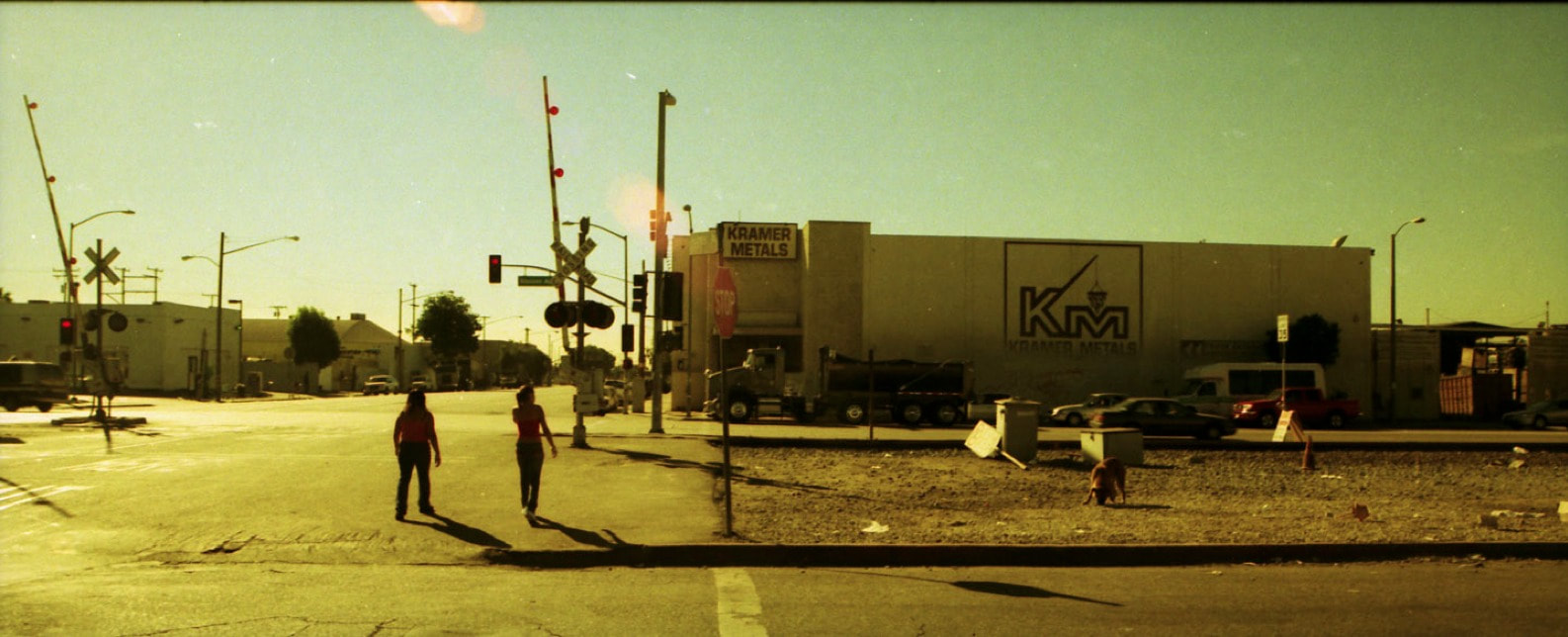
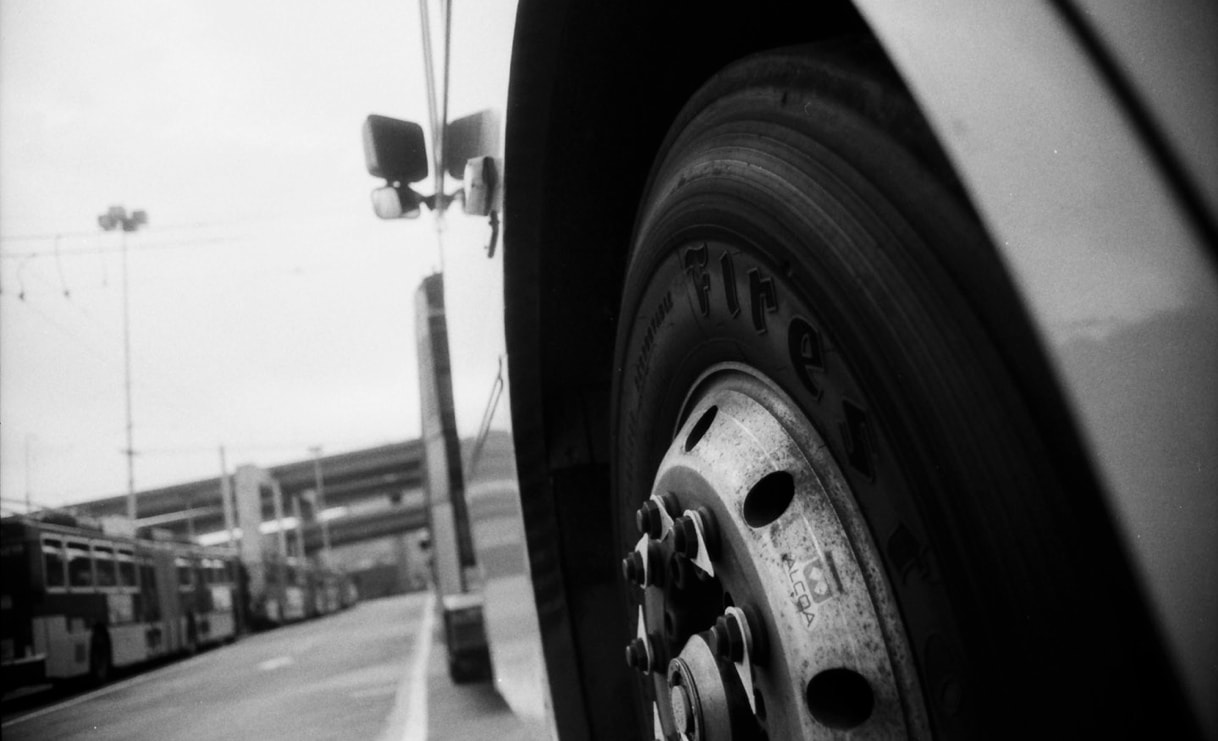
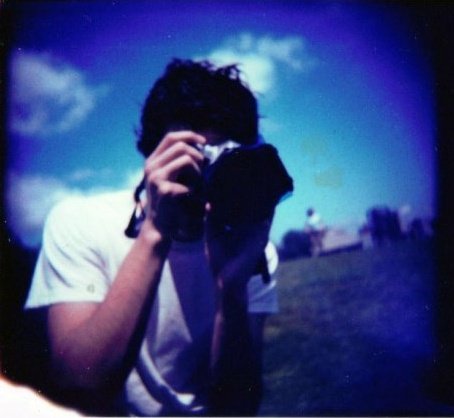
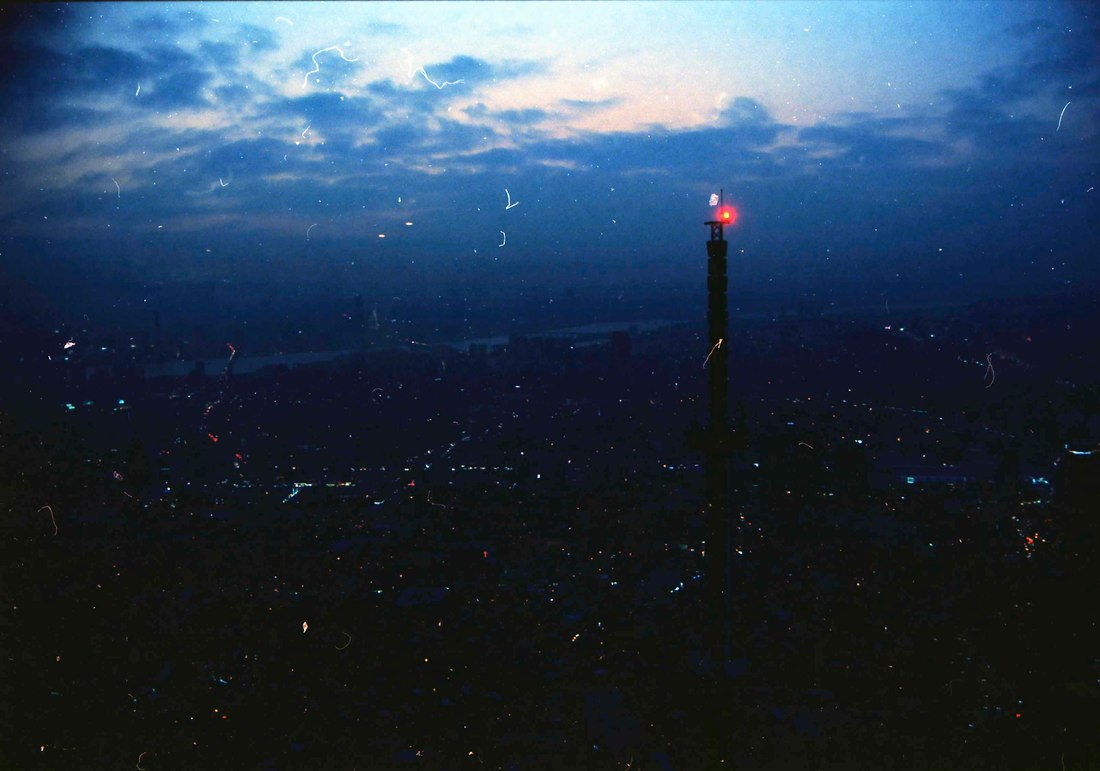
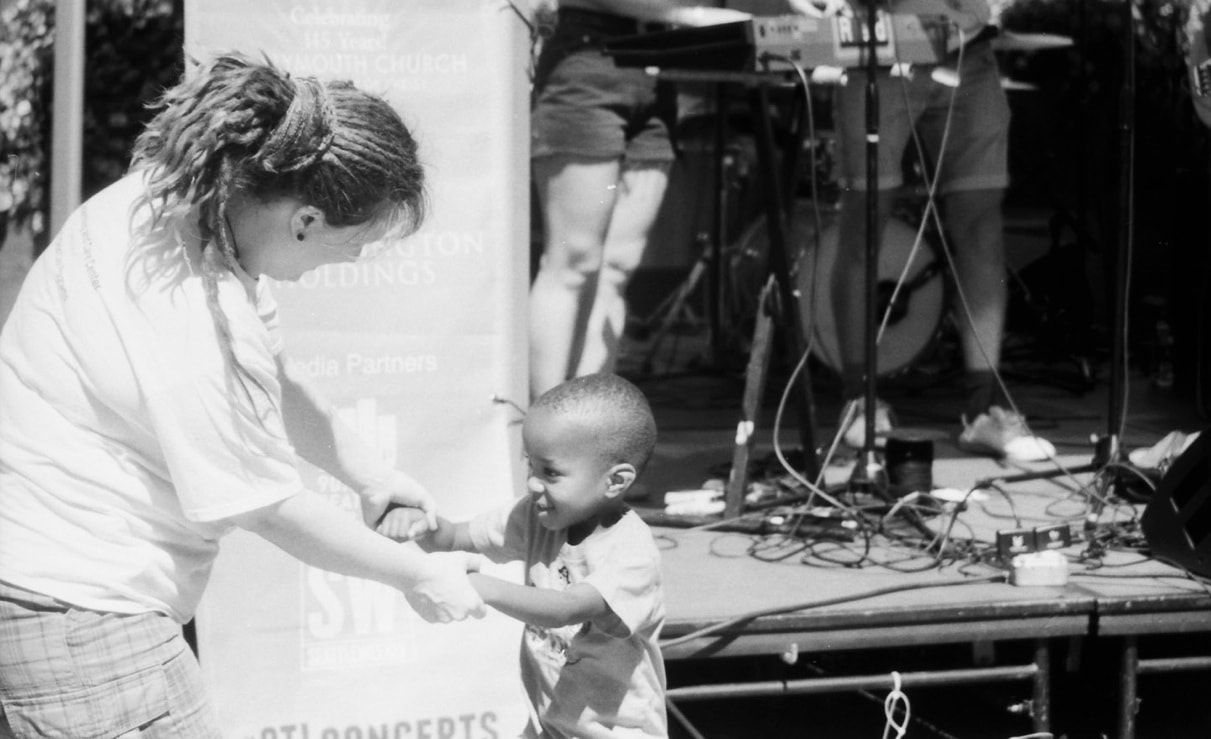
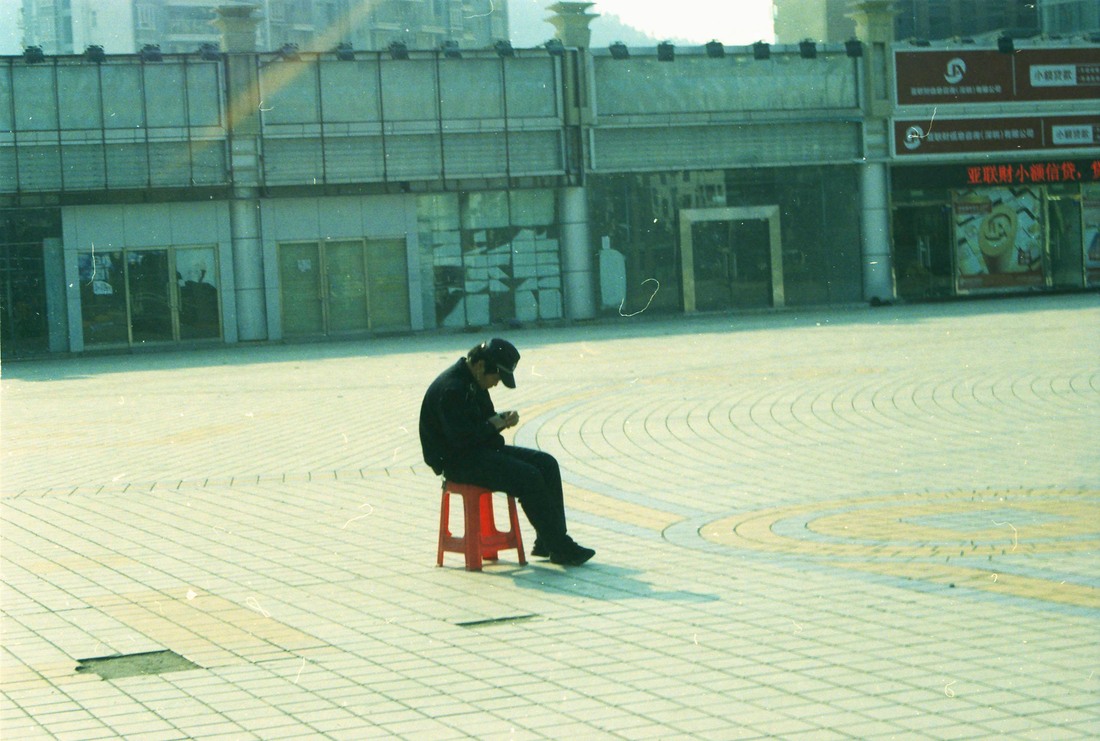
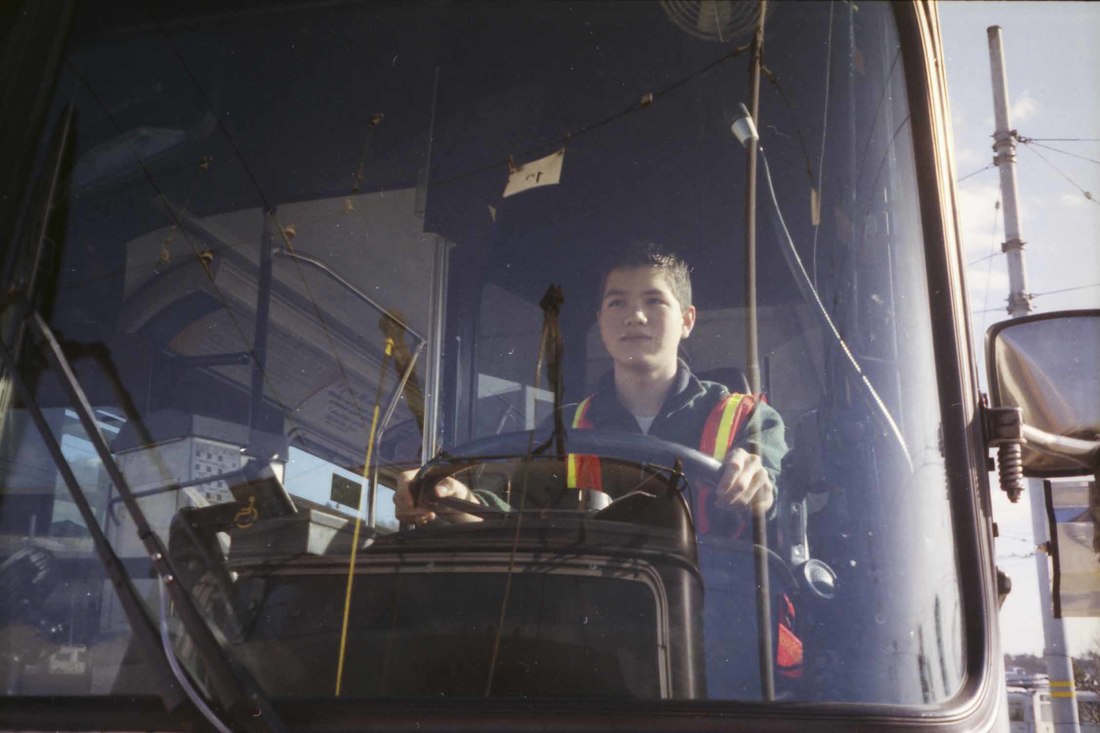
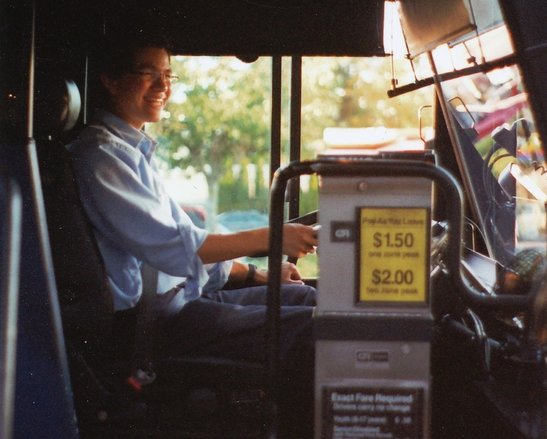
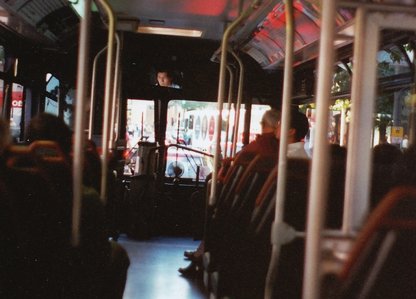
 RSS Feed
RSS Feed
